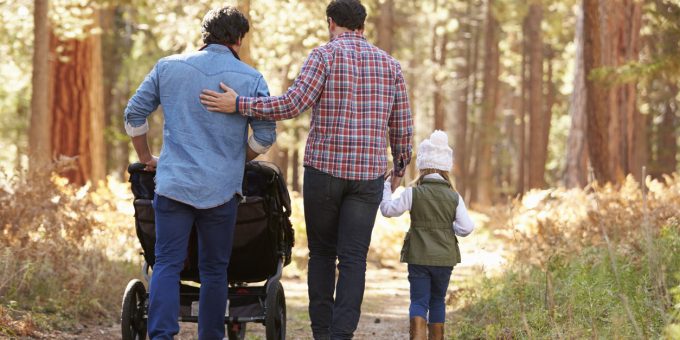
LGB Canadians experience mental health disparities that vary by location, as well as partnership status and gender. iStockPhoto // monkeybusinessimages
rural rainbows
When envisioning the places most conducive to lesbian, gay, and bisexual (LGB) flourishing, we might picture urban hubs like Montreal, Toronto, and Vancouver, with their populations, progressive attitudes, and vibrant gay social scenes. But how are LGB-identifying Canadians faring in rural areas?
A study in the Canadian Review of Sociology examines LGB mental health across the urban/rural divide, finding mental health disparities that vary in complex ways along with respondents’ partnership status and gender. Drawing from 10 years of aggregated data sourced from the Canadian Community Health Survey, author Matthew Stackhouse shows that partnered gay men residing in rural areas report the highest predicted scores of mental well-being—higher than both their partnered heterosexual counterparts and partnered gay men dwelling in Canada’s largest urban cities. Among partnered lesbian women, there were no significant mental health disparities across geographical regions. Regardless of partnership status and geographic context, bisexual individuals—particularly bisexual women—display disadvantaged mental health outcomes when compared to their heterosexual counterparts.
The findings of this study provide insight into the role of romantic partners as buffers against the challenges experienced by LGB Canadians, particularly those in rural areas. They also underscore how both single LGB individuals and bisexual women face significant disadvantages in mental health outcomes, speaking to the necessity of creating rural environments where they can thrive as well.
